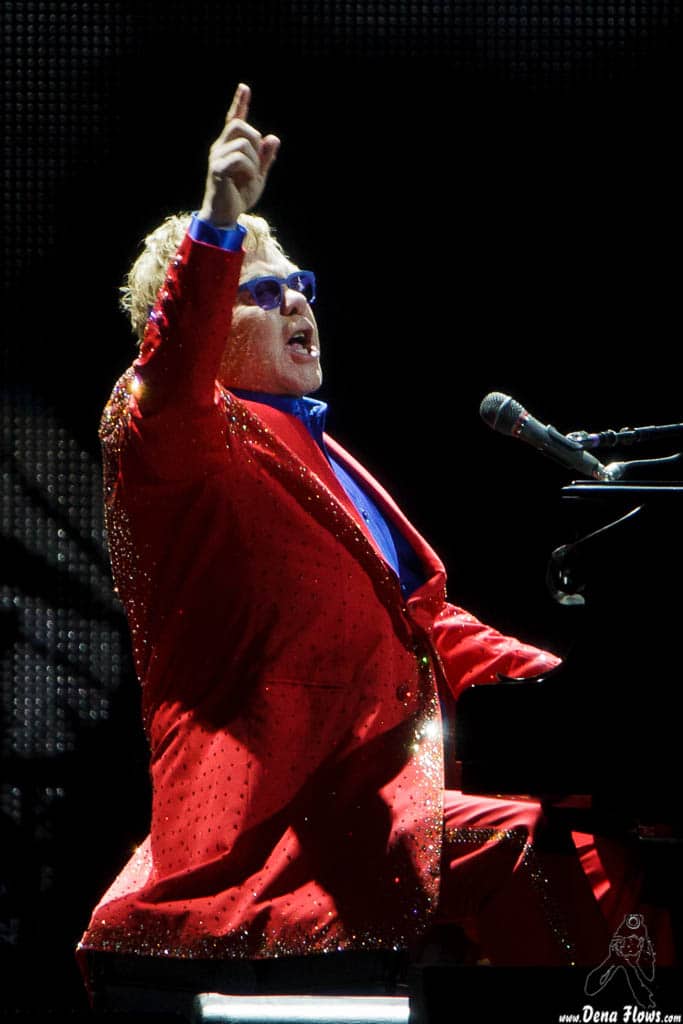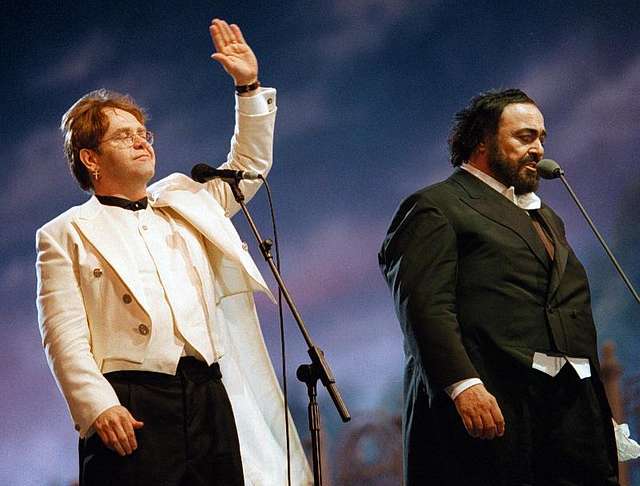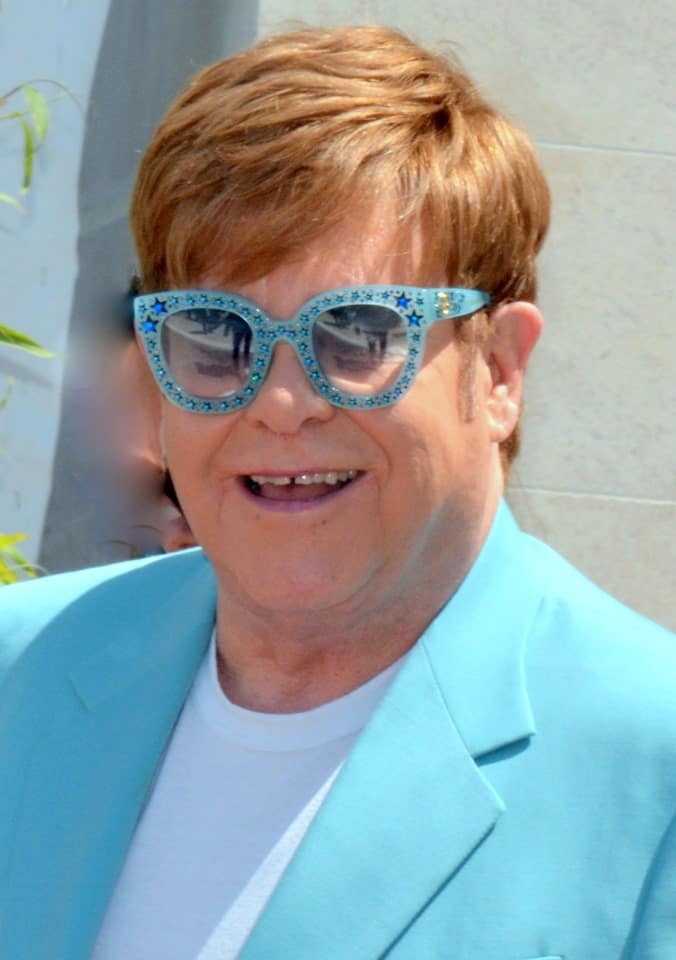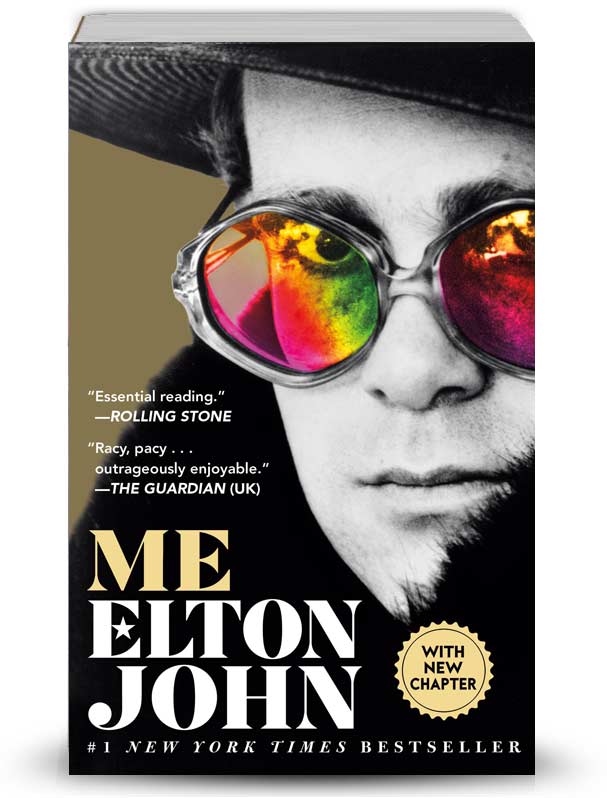It is very easy to think that we know celebrities to the point that we can understand them or even predict their behavior, but the simple fact is that we do not.
We know what the celebrity lets us see, what they specifically chose for us to see, which is usually a much more polished and shiny version of the true theme of things. This makes dissecting and analyzing their personality particularly hard to do even more so, proving its accuracy.
Throw into the mix that the celebrity you are trying to work out has an ESFJ (The Supporter) personality, which means that almost by pure definition, how to portray over half the traits of someone with an ESFJ personality to be a celebrity, and you are faced with a challenging task, with the first hurdle being working out where to start.
First of all, one of the most complex parts I had in researching this article was trying to differentiate what parts of their personality a celebrity projects.
Because of their status, which can sometimes mean that these can be somewhat forced or elaborated, filtered and planned, and which traits are typical of an ESFJ celebrity. But how could we see or know for sure? Well, reading their autobiography couldn’t hurt, could it?
I, along with a vast percentage of the country, recently found I had a lot more time on my hands during this last year, and so turned my attention to my ever-increasing bookcase to find a way to escape the doom and gloom of lockdown, and came across a gem of an autobiography – Elton John, Me!

Elton Johns Autobiography – Me!
Without wanting to give too much away about the book itself, as it is an excellent read (in my humble opinion) and you should grab yourself a copy, I did want to share with you how it made me feel after reading it, which was, in short, that I had known Elton John all my life and that we were kindred spirits in a strange yet familiar, weird and unexplainable way.
But since completing my Personality Max personality test and researching my results, I think I might have found the reason why I felt so connected to a man almost twice my age who I have never met before.
Both Elton and I have the same ESFJ personalities!
For any of you who have seen Elton John’s autobiographical film, Rocket Man, which preceded this book, you will be familiar with Elton John’s quirky storytelling, with his clever one-liners and his extraordinarily versatile and practical use of light and shade (with a generous dollop of flamingo pink with diamond-encrusted sprinkles on top to compliment it).
This book boasts a similar, winning formula, which will leave the reader with little doubt that Elton had a very present role in writing both projects, making the observations I am about to relay to you as accurate as they can without having ever met him.
When researching the definition of an ESFJ personality, one of the most dominant words used to describe such a personality was extrovert. As I said before, this is a challenging trait to pinpoint in an ESFJ celebrity personality because it is scarce that someone comfortable being in the public eye would be introverted.
Yet not all celebrities have ESFJ personalities, and not everyone who has an ESFJ personality is a celebrity. However, this does not mean that I am any less of an extrovert than Elton John, just that he has the platform and the wardrobe to project his ESFJ personality further and louder than I could. But being an extrovert isn’t just about volume or even confidence (though that plays a significant part in anyone’s personality). It can also be about a way of mind and how that way of mind directs your moods and your projection of them.
Of course, Elton John is well known for being a showman and an incredibly amazing one at that, so it would be forgiven for thinking that maybe he plays his personality up a bit for the cameras out of a sense of obligation to perform for his fans. However, after reading this book, I felt that his outgoing personality has more to do with a sense of freedom. By that, I don’t mean the freedom that fame brings.
Although he relished in that too, as he explains when describing his famous Dodger Stadium concert:
But sometimes, something else happens on stage: from the minute you start playing, you know you can do no wrong. It’s as if your hands are moving independently of your brain; you don’t even have to concentrate. You feel as free as a bird. You can do anything you want. Those are the gigs you live for, and Dodger Stadium was like that on both days.
― Elton John, Me
But the freedom I felt coming through Elton’s words is, in fact, more of freedom that comes from not needing to care about what anyone else thinks about you. Can you imagine being so comfortable with who you are that you can be anyone you want to be? Well, as someone with an ESFJ personality you can be, Elton John has proved it!

Of course, achieving such a sense of personal freedom does not happen instantly. It takes a lot of hard work and determination, not just physical graft either. It takes a lot of souls searching to reach that point of comfort and clarity.
Now, I am not saying for one moment that Elton John is even there yet. He probably isn’t and would be the first to admit that, but it seems like a pretty nice place to be whatever point he is at. However, it certainly doesn’t seem like a very easy place to get to, though don’t get me wrong, the book by no means paints Elton a pity party whatsoever, nor does it portray him as a martyr, but instead documents a candid and raw portrayal of a journey that he doesn’t for one moment pretend was perfect, but one that he is undoubtedly proud of, and grateful to have traveled.
What else is very apparent from Elton John, Me! Is that, despite the glitz and glamor of Elton’s life and career, what this book does reveal (to me anyway) is that what is important to Elton John are the same things that are important to me, and possibly you, and it is these traits that connect us that prove to me that Elton John is a celebrity with an ESFJ personality, and which is why I felt so connected to him through his story.
Like I have said, the obvious ESFJ personality traits which instantly connect us to Elton John, the social butterfly who craves others’ acceptance and appreciation, can be part of the usual fame persona, but in the case of an ESFJ personality, especially that of a celebrity ESFJ personality, and even more so in the case of Elton John, it might also have something to do with their need to surround themselves with friend and family. And, while we all like being surrounded by friends and family, the reason ESFJ personalities like to be surrounded is not purely for attention. It also comes from a need to nurture and keep people close, as friendships and relationships are essential to us, and our biggest fear is losing them.
Elton explains this perfectly in his book when he says:
As everyone knows, fame, especially sudden fame, is a hollow, shallow and dangerous thing. It’s dark, seductive powers are no substitute for true love or real friendship.
– Elton John, Me!
The need to nurture our relationships dear to us compliments many other positive ESFJ traits such as loyalty, sensitivity, and satisfaction at work and home. Still, it can also lead to more negative characteristics – such as insecurity. An insecure ESFJ celebrity can be a needy one, and their craving for constant approval and appreciation can be a bit intense. It can push those they are trying so hard to cling to away from them, completing the vicious cycle.
However, rather than being the kind of people to wallow or become engulfed by our insecurities, we ESFJ personalities have another lovely little trait to take the need to nurture and be appreciated for it and redirect it out to the broader community to help those in need.
This is where being a celebrity with an ESFJ personality comes in handy, as they have a bigger platform to launch and spread this goodwill and kindness, which is more than apparent in Elton John’s case.
While barely mentioning his charity work in the film, Elton does talk about some of his projects in the book, not out of a sense of boasting, but real pride and passion for what they achieve, while maintaining a dignified modesty when it comes to his epic contributions to society, whether it be from raising millions to support his Aids Foundation to buying his beloved Watford Football Club to stop it from going into administration and funding it, and nurturing it, as the club rose from the ashes, and high up in the ranks of professional football in the early 1980s as a result.
Another ESFJ personality trait that Elton John seems to project quite clearly is his satisfaction with his work and his people. Now, you wouldn’t be wrong for thinking how Elton John could not like his work. He has earned a killing from it and gained wide worldly acclaim and praise for it, something which would be more of a result than money would I think.
But the difference I could see was that there was no difference in his tone when Elton described the way making music made him feel right at the beginning, when he was an unknown teenager playing piano in a spit and sawdust bar to the backdrop of cigarette smoke and drunken brawls, to when he went on to later describe how he felt playing at some of the huge arena concerts he went on to pack out.
More so, he seems to hold every person on whatever part of that journey with him in the same high esteem, whether it be when he first met his long-term songwriting partner Bernie Taupin back before either were known or collaborating with the late great George Michael. And the reason for this is that Elton is a person who respects and admires his colleagues. Despite admissions in the book about some of his diva behavior over the years, he doesn’t seem to have ever valued himself above any of the people he worked with.
This is another typical trait commonly found in those with an ESFJ personality, one which connects very neatly to another – believing in the importance of the relationships you form.

A young Elton met Bernie Taupin back in 1967 when a chance opportunity in the form of an unopened envelope found the unlikely way into Elton’s hand by a producer who wanted to soften the blow of rejecting his application to take part in a talent drive. The envelope contained the music sheets of Bernie, who was looking to sell his songs, which Elton took away and put words to, before sending back the finished version via post.
The rest, as they say, is history, and what a long history it has been, which again lends proof to how seriously Elton takes the connections he makes with people, and the relationships he forms with them, and evidence that luck didn’t have as much to do with it as Elton’s personality and hard work ethic keeping him going and never giving up on what he must have realized was a relationship to nurture and be proud of, while realizing that this valued friendship and collaboration was producing vast amounts of the appreciation he desired.
But as lovely as it sounds to have an ESFJ personality, and having one myself, I can vouch that there are still some bad streets to avoid on this journey of self-discovery, ones which Elton, unfortunately, could not.
None of us are fans of criticism, and as I have already pointed out, someone who has an ESFJ personality craving acceptance and appreciation is even less likely to take it well. So for a celebrity whose ESFJ personality means their extrovert characteristics tend to make them a little more dramatic than others, they are particularly vulnerable when it comes to criticism.
This, in turn, can lead to stress which typically, according to research, people with ESFJ personalities should be pretty good at handling. This part of the description of my personality, which Elton John and I share, made me stop, think and reconsider my results if I am honest with you. You see, I have never considered myself good at handling stress. If something stresses me out, or worse still frightens me, I tend to put it in a sealed box deep in my soul and back away quickly from it.
As for Elton, his way of dealing with his stress and anxiety used to be his widely documented battle with drink and drug addiction, not the best way to handle it, as he explains himself in his book:
If you fancy living in a despondent world of unending, delusional bullshit, I really can’t recommend cocaine highly enough.
― Elton John, Me
But the key part of how I described his handling technique was using the words “used to be” because half the battle of dealing with a problem is accepting it is there in the first place. As for me, I might have put my problem in a box, but I know where it is. Despite feeling like a failure every time I run away from it, the part I always forget to congratulate myself on is the fact that I continually revisit the box to see if I understand the problem any better, or if it scares me any less until it can be filed in. And, while Elton had turned to drink and drugs to hide from whatever demons he was running from, at least he could see that he was running from them, which in turn became less important than stopping and asking himself why. So maybe the only way to handle stress well is to have mishandled it to start with and work your way up?
For me, my methods seem to work. I am not stressed today over what made me stressed yesterday, so I must have handled it. Elton, while handling it poorly, was still astute enough to work out how to stop handling it poorly, and I don’t just mean rehab.
Although as Elton John describes in his book, would eventually help him, it wasn’t the best experience at first:
But the real problem was that the treatment was based around the Alcoholics Anonymous 12-step program, and as soon as my counselor started talking to me about God, I flipped out. I didn’t want to know about religion: religion was dogma, it was bigotry, it was the Moral Majority, and people like Jerry Falwell saying that AIDS was God’s judgment on homosexuals.
― Elton John, Me
But what did seem to help Elton considerably was his ability to identify and accept which of his character traits were unhealthy and then swapped them with better traits for him. For Elton, this seems to have been replacing his vulnerability stemmed from his insecurities, with his focus on the good parts of his personality, in particular, his life and work satisfaction, explaining in his book how his purpose for his music changed at this stage of his life:
There are times in my life when music has been an escape, the only thing that worked when everything else seemed broken, but at that moment, I had nothing to escape from. I was twenty-four, successful, settled, and in love.
― Elton John, Me
This brings us back to the importance of Elton’s relationships to him, and once he found what he had always wanted in life with his career and his charity work ticking all his professional boxes, the final piece of his happiness was finally secured when he met his husband David Furnish and created the family he adores so clearly with him, but finding love hasn’t been plain sailing for Elton.
You see, for someone like Elton, for someone like you or I, this need to nurture coupled with the craving for acceptance and appreciation makes us start every relationship we enter into with the wholehearted belief that this is the most important relationship in our entire life. It is improbable and unrealistic to do this and will often result in one or both parties getting hurt when it becomes clear that this isn’t ‘the one after all. This can be a particularly bitter pill to swallow for someone with an ESFJ personality. As I have previously mentioned, we put our whole heart and soul into making relationships work. And for Elton John especially, it must have been hard, having created and built this iconic working relationship with Bernie Taupin, to accept that the same didn’t happen as seamlessly and romantically with love.
Of course, Elton had relationships before David, all of which he talks about so fondly and with the utmost respect in his book. Still, he must look back now and see how they were never going to be ‘the one’ he was looking for – two of them were with women, for example – but what is very clear in the book is how much he valued every one of them, and includes them in the credits of his life, grateful for their contribution to it. This proves how much Elton John appreciates the relationships he forms and demonstrates how a relationship doesn’t have to last forever for you to feel satisfied with it. It is this form of positive thinking which then makes finding the relationship that forever feels so special and will give you such a sense of achievement and contentment when you find it, and you can feel from the pages of the book that this is where Elton John is in his life right now.
This process doesn’t just include accepting the romantic relationships that aren’t meant to be. There are bigger disappointments to be had in love from relationships that you can’t just fold away and choose to save only the good memories from once they have disappeared into the sunset, as Elton John knows only too well.
Right from the start of Elton John’s autobiography, Elton John, Me, he describes his relationship with his mum and dad with a mixed tape of emotions. It is clear from the off that of all the people whose acceptance and appreciation Elton wanted, they were top of the chart. Maybe this goes some way to explain why nobody else’s opinions of him seemed to phase Elton, certainly not enough to be mentioned in the book anyway.
However, one theme that is repeated is his continual disappointment in the clashing of personalities, in particular with his mother, as he explains in his book:
“A psychologist would probably say that, as a kid, I was trying to create a sense of order in a chaotic life, with my dad coming and going and all the reprimands and rows. I didn’t have control over that or my mother’s moods, but I had control over the stuff in my room. Objects couldn’t do me any harm. I found them comforting. I talked to them. I behaved as if they had feelings. If something got broken, I’d feel distraught, as if I’d killed something.”
― Elton John, Me
It is unfortunate to think you have failed when it comes to maintaining the relationship you have with your parents, but the way that Elton John deals with it truly defines his nature and proves he has the true ESFJ spirit.
Again, rather than dwelling, Elton instead seems to have used the experience to analyze why things were wrong and how to move forward while accepting they are unlikely to change – a priceless skill, in my opinion, and one I hope I can perfect now that I had taken this journey myself – while maintaining his humbled dignity, both to himself and his parents, without a shred of resentment.
However, he does sometimes hide behind his humor to describe some of what I can only imagine were some of the most hurtful occasions, such as when his mother tried to ruin his wedding:
I’m not just behaving like an idiot. I’m behaving like my mother – and rush around issuing desperate apologies to everyone concerned. Mum never snapped out of it, never seemed ashamed, never appeared to think she was in the wrong or misbehaving.
The best you could hope for was a terrible argument – in which, as ever, she had to have the last word – followed by an awkward smoothing over, a shaky truce that lasted until she went off again. As the years passed, she had elevated sulking to an epic, awesome level. She was the Cecil B. DeMille of bad moods, the Tolstoy of taking a huff. I’m exaggerating only slightly. We’re talking about a woman who didn’t speak to her own sister for ten years as a result of an argument over whether Auntie Win had put skimmed milk in her tea or not. A woman whose dedication to sulking was such that, at its height, it caused her to pack her entire life up and leave the country.
It happened in the eighties; she fell out with me and one of Derf’s sons from his first marriage at the same time and, as a result, emigrated to Menorca. She would rather move to a foreign country than back down or apologize. There’s not an enormous amount of point in trying to reason with someone like that.
― Elton John, Me
This seems like an impossible situation to process without prejudice, especially when the person who can’t seem to please his parents is one of the biggest, most successful, and influential singer-songwriters of all time. But rather than raise two fingers to this devastating sense of rejection inflicted upon him by them, which I don’t think anyone who reads the book would blame him for, Elton instead, with a genuinely dignified pen, explains how the secret to peace within this situation is acceptance.
With that acceptance that he cannot change things in the way he would like, Elton even finds the strength to be constructive about it. He doesn’t even seriously fault either parent, apart from drawing comparisons between them and the parts of himself that he doesn’t understand or his faults.
Instead, he draws the best possible positive out of this, which is to learn from their mistakes how to be a better person. A better parent, ensuring that he doesn’t repeat his parents’ mistakes with his own family, which is working a treat from the sounds of it.
And it taught me something important. Sometimes, you have to step up to the plate, even if the plate is miles outside your comfort zone. It’s like going deep inside yourself, forgetting about whatever emotions you may have, and thinking: no, I’m a performer. This is what I do. So get on with it.
― Elton John, Me
How Elton speaks about his children, the way he talks about his husband, and the life they have created together shows how his nurturing nature, and his desire to give all his relationships his absolute all, makes all round for a pretty satisfying life, even the bad parts, as he explains in his book:
“The responsibility was huge, but there is nothing about being a father that I don’t love. I even found the toddler tantrums weirdly charming. Do you think you’re being difficult, my little sausage? Have I ever told you about the time I drank eight vodka martinis, took all my clothes off in front of a film crew, and then broke my manager’s nose?”
― Elton John, Me
The main thing I drew from reading this book was when Elton talks about his life. He doesn’t talk as a multi-platinum selling, multi pound making, musical genius, and gay icon, he speaks as a husband, as a son, a father, and friend, and everything he talks about is, at that moment, is the most important thing in the world. The only thing that comes close to its importance is your reaction to it.
That is what it is to have an ESFJ personality. That is what it is to be Elton John. That is what it is to be me, which could be what it is to be you.
I worked hard, maybe too hard, but it felt like there was an unstoppable momentum behind me that carried me on no matter how exhausted I was, that drove me through any kind of setback.
― Elton John, Me
It seems very fitting to finish this piece with an excellent Q&A session with Sir Elton John as he answers some brilliant questions about his past and ideas on life!
This article was expertly written by Martha Mitchell from PersonalityMax.com
- The Alice Cooper Fact Sheet – 5 Things You Need To Know - January 12, 2023
- Everybody Knows The Words, But What Is Hotel California About? - April 29, 2022
- What Is The Meaning Of Stairway To Heaven: Led Zeppelin’s Amazing 1971 Musical Epic? - April 24, 2022


